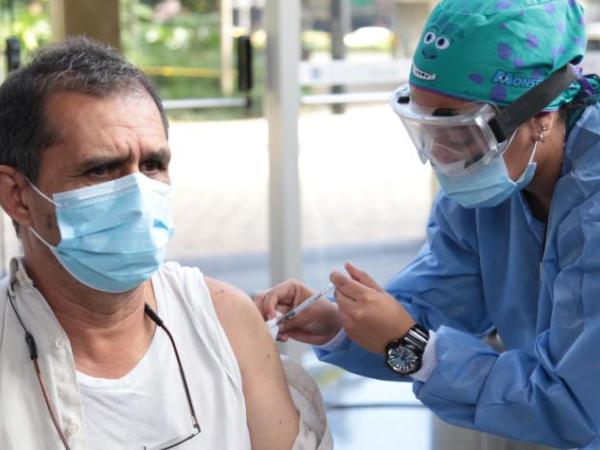On May 19th, World Inflammatory Bowel Disease Day will be celebrated. The Brazilian Society of Coloproctology (SBCP) warns of the increase in the prevalence of these diseases in Brazil, drawing attention to the cause through the Maio Roxo campaign.
According to the entity, inflammatory bowel diseases affect more than 5 million people worldwide and have no cure, but early diagnosis helps to establish a treatment to improve quality of life. In Brazil, an increase in cases has been observed in recent years, the most common being Crohn’s disease and ulcerative colitis.
Study
Based on data from DataSUS, the SBCP analyzed the incidence and prevalence rates of inflammatory bowel diseases in Brazil from 2012 to 2020. Information from 212,026 patients of both sexes was analyzed, 140,705 with Crohn’s disease and 92,326 with ulcerative colitis.
For physician Paulo Gustavo Kotze, a member of the SBCP and one of the study authors, the incidence, that is, the registration of new cases, rose from 9.41 per 100,000 inhabitants in 2012 to 9.57 per 100,000 inhabitants in 2012. 2020, an average annual change of 0.80%. The prevalence, which is the sum of cases, went from 30.01 per 100 thousand inhabitants to 100.13 per 100 thousand inhabitants in the same period, an average variation of 14.87% per year.
“In Brazil, the prevalence of inflammatory bowel diseases reaches 100 cases for every 100,000 inhabitants in the public system, with the highest concentration in the Southeast and South regions. In some developed countries, the prevalence can reach up to 1% of the population. The average incidence in 2020 in the country was seven cases for ulcerative colitis and three for Crohn’s disease for every 100,000 inhabitants,” said Kotze.
Causes and symptoms
The SBCP also warns that inflammatory bowel diseases are more frequent in adolescents and young adults, aged 15 to 40 years, with causes related to genetic, immunological, environmental, dietary factors and alteration of the intestinal flora. Smoking is a risk factor for worsening Crohn’s disease.
The symptoms of the two diseases are similar, but ulcerative colitis only affects the intestinal mucosa of the rectum and colon, known as the large intestine. Crohn’s disease, on the other hand, can affect the entire digestive tract, from the mouth to the anus, being more prevalent in the small intestine, colon and perianal region, causing inflammation in all intestinal layers.
Among the symptoms are chronic diarrhea with blood, mucus or pus, associated with abdominal cramps, evacuation urgency, lack of appetite, fatigue and weight loss. In more severe cases, the patient may have anemia, fever, malnutrition and abdominal distension. Between 15% and 30% of patients also have extraintestinal manifestations such as joint pain, skin or eye lesions.
The diagnosis of inflammatory bowel diseases is made by a specialist, after analyzing the clinical history and laboratory, endoscopic, radiological and biopsies tests. Kotze says that the symptoms can be confused with those of more common diseases, such as irritable bowel syndrome and infectious diarrhea, “so a global analysis of the patient is essential”, he says.
Treatment
Inflammatory bowel diseases have no cure, but proper treatment allows the control of the inflammatory process and symptoms, with the induction of disease remission through topical anti-inflammatory drugs, corticosteroids and injectable drugs. Maintenance of the condition is carried out without steroids, and immunosuppressants and biological agents may be associated. According to Kotze, early diagnosis is important to avoid complications.
“Even with adequate clinical treatment, the challenges of improvement persist and a significant part of patients still need different types of surgery for their treatment. The importance of early diagnosis and treatment lies in the possibility of avoiding complications and consequent surgeries”, he adds.
Another important point for patients is to follow a proper diet. According to the SBCP, good eating habits can prevent the development of the disease and maintain remission.
The orientation must be done by a multidisciplinary team of doctors and nutritionists, since the type of food recommended varies according to the stage and severity of the disease in each patient.

















